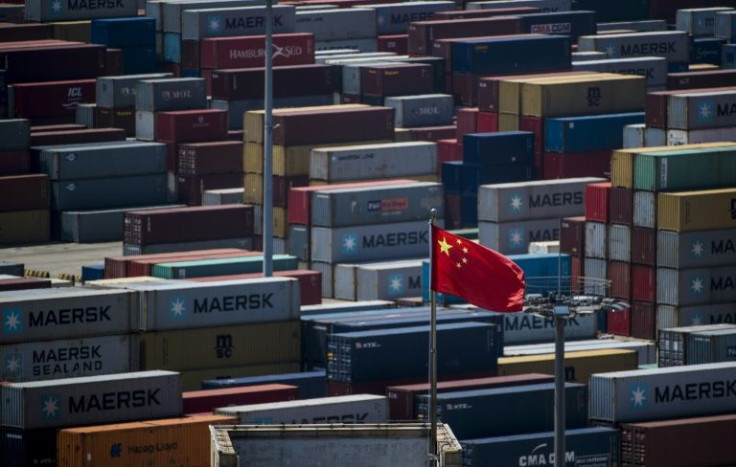China Should Solve Its Inflation Problem Before It Solves America's
China should solve its property inflation, which makes landlords rich and shatters the dreams of young people to afford a home and raise a family, rather than trying to solve America's commodity inflation problem.
China has a new noble mission these days, to help America solve its inflation problem. According to a recent Global Times editorial, America has sought China's help to fight inflation by getting back to the negotiation table to work out a tariff reduction schedule on Chinese products.
"The US is seeking help from China to ease its economic pressure, hinting that it may ease tariffs on Chinese goods and engage in dialogue with senior Chinese officials more often," said the editorial.
And Beijing seems anxious to offer it, according to the same editorial, with the Chinese Vice Premier Liu He holding a video conversation with US Secretary of Treasury Janet Yellen. In addition, the two sides agreed to hold a follow-up meeting between the Chinese State Councilor and Foreign Minister Wang Yi and the US Secretary of State Antony Blinken during the meeting of G20 foreign ministers.
While another round of negotiations between China and America could result in a tariff reduction on Chinese products imposed by the previous US administration, it's hardly the same as asking Beijing to help solve America's inflation problem. Instead, it could be a change in Washington's strategy in dealing with China's mercantilist policies.
"Any hope that the Biden Administration's attempt to tame inflation through a reduction in Trump-era Section 301 tariffs (tariffs imposed to punish China for its unfair trade practices and IP theft) might ease tensions with China is unwarranted," Juscelino Colares, a professor of business law at Case Western Reserve University, told International Business Times in an email. "Industry officials and members of the former Administration aware of current plans report today that the Administration is only planning to eliminate about $10 billion in consumer goods (a measly figure if compared to the total level currently charged)."
Bob Bilbruck, CEO at Captjur, doesn't see the lifting of tariffs on Chinese goods having any meaningful impact on US inflation. "Most likely, if the Biden administration lifts tariffs, the Chinese will still charge the same for the goods they are shipping us. They will take the money they were paying in tariffs and tack it on to their bottom line to boost their GDP," he told IBT in an email. "The idea that lifting tariffs would help the inflationary pressures we are feeling in the US is just plain wrong. There is no pressure on the Chinese to take off the costs of goods. They have plenty of demand for those goods in other areas. So, all we would do by dropping the tariffs is give back the TAX that we have been charging them to access our US markets."
So what Washington is doing by bringing Beijing back to the negotiation table is a change in strategy, "a new Section 301 investigation targeting heavily subsidized sectors of the Chinese economy," according to Professor Colares. "The latter, a commendable and necessary measure against Chinese mercantilist practices, will surely not improve short- and medium-term inflation expectations."
In short, by returning to the negotiating table with Washington, Beijing won't help solve America's inflation problem. But before trying to solve America's commodity inflation problem, China must solve its property inflation problem, which hurts the country's long-term growth prospects, as the three lost decades of neighboring Japan demonstrate.

© Copyright IBTimes 2024. All rights reserved.






















